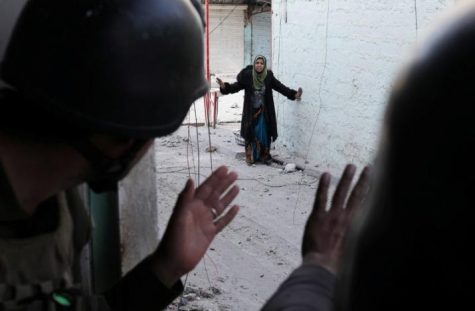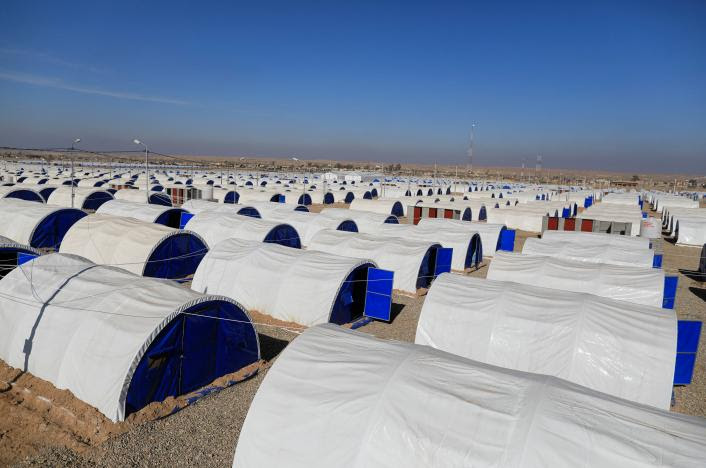Battle for Mosul
Refugee camps, like this one south of Mosul, have experienced a sudden influx of civilians fleeing the fighting in Mosul.
March 17, 2017
The Battle of Mosul, a major city in the northwest of Iraq, has been raging for four and a half months, causing a massive flow of refugees out of the city. The fight for control of Mosul, which has been occupied by ISIS for more than two years, has destroyed much of the city, and as the fighting moves into the more densely populated western part of the city, the flow of refugees may continue to rise.
Currently, the UN Office for the Coordination of Humanitarian Affairs estimates that over 28,000 Iraqis have fled the city since February 19th, when the battle to take the western part of the city began. With 4,000 civilians fleeing the city every day, refugee camps in the area are scrambling to shelter those fleeing the fighting.
Meanwhile, the advance of Iraqi Security Forces into the city has been slowed due to the high number of civilians in the area. This problem is worsened by the Islamic State’s tactic of forcing civilians from the outskirts of Mosul into the city center, where they are used as human shields for the terrorists.
The western part of the city also contains the old city of Mosul, whose ancient markets and places of worship may now be threatened by the fighting. The old city also contains the Grand Mosque of Mosul, parts of which date back to the 7th Century.
Iraqi Security Forces recently captured the roads to the west of Mosul, cutting off supplies to the ISIS fighters still in the city. The capture of Mosul by the Iraqi Army would be a huge milestone in the fight against the Islamic State, and could signal the fall of ISIS in Iraq.
“I think that it is terrible to see Iraq consumed by so much fighting,” says Cam Bonnell, a senior, “I just hope that the region experiences peace after ISIS is driven out.”

Iraqi Soldiers signaling to a civilian fleeing the fighting in Mosul.
In what is perhaps a bitter foreshadowing of US foreign policy under the Trump administration, US Marines arrived outside of Raqqa in Eastern Syria on March 8th to assist in the final offensives against the Islamic State.
When asked about the wisdom of the initial US Invasion of Iraq in 2003 which destabilized the region, RJ Harrington, a senior, questioned the motives of George W. Bush in invading the country and stated, “I don’t believe that Bush was right in his decision to go into Iraq.”


































